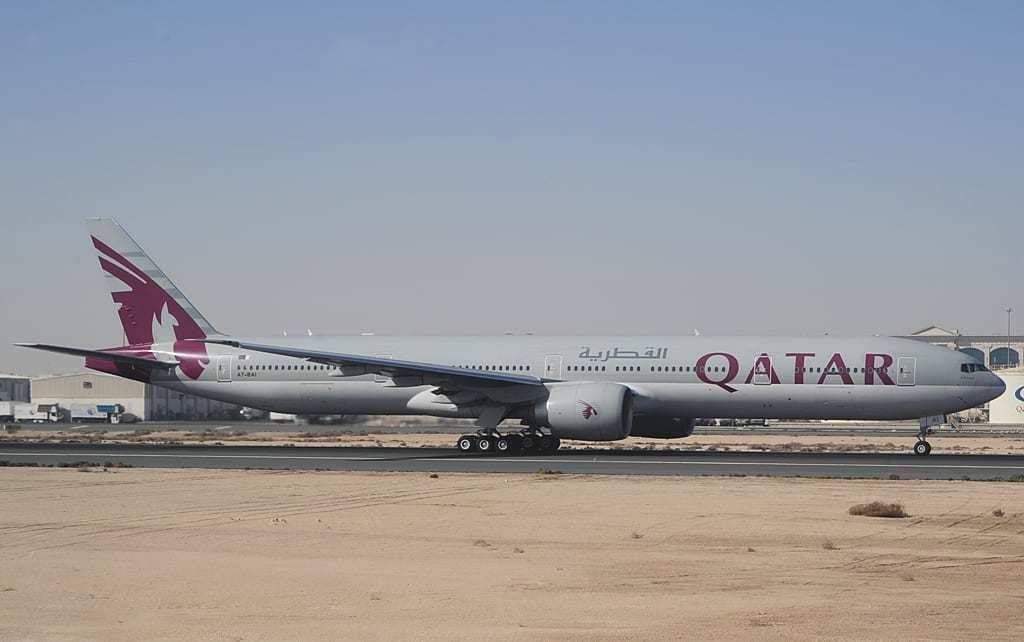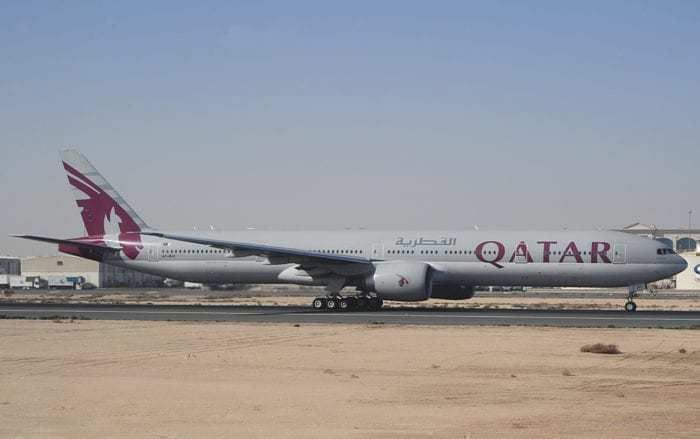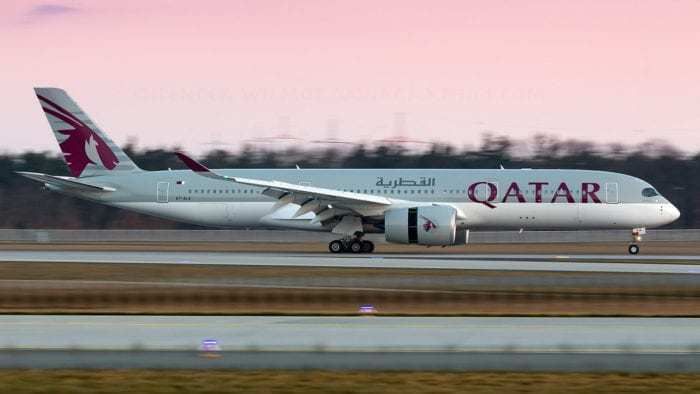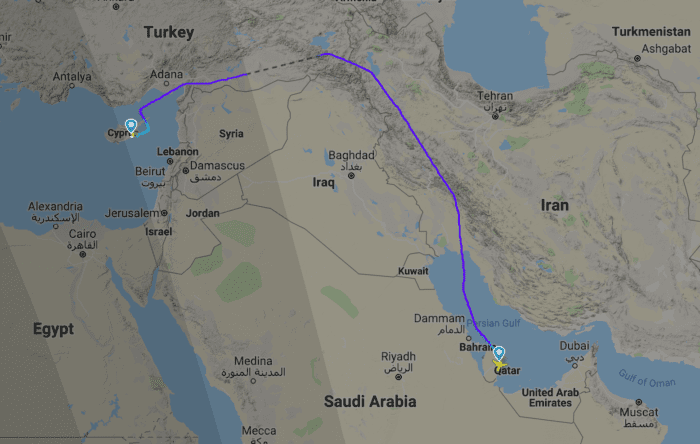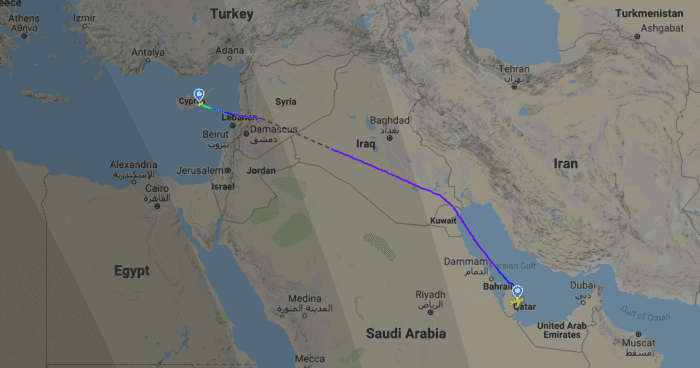Last week we saw reports that, after eight long years, Syria had re-opened its airspace to Qatar Airways. When the civil war in Syria broke out in 2011, airlines stopped flying over the country and instead went over neighboring countries. These detours lengthen flight times and consume more fuel, presenting higher costs to airlines. Now the request of Qatar Airways to fly over the country has been approved by the Syrian Government. This comes shortly after a visit to Damascus by Iraqi National Security Adviser Faleh Al Fayyad, who reportedly carried messages from Doha to Damascus the previous week.
A break for Qatar
Qatar and its flag carrier haven’t had it easy in the last few years. In June 2017, Saudi Arabia, the United Arab Emirates, Bahrain, Egypt and several other Arab nations imposed a land and sea blockade. Qatar Airways was also banned from flying over Saudi and Bahraini airspace. The aim of this blockade was to punish Qatar for its alleged support of Sunni Islamist terrorism and Iranian influence in the region.
Since the initial shock of the coordinated blockade, we see that it failed cripple the Qatari economy as expected. On the contrary, the country’s vast wealth was able to provide a cushion to the harsh impact of the blockade. Qatar accessed some of its $340 billion in reserve funding to establish new trading partners and build its domestic industries. However, while the country has proven itself resilient, Qatar Airways has suffered due to “longer flying time and loss of departing seats from the blockading countries”. Qatar Airways CEO Akbar al-Baker said in a statement following the release of its 2017 Annual Report:
This turbulent year has inevitably had an impact on our financial results, which reflect the negative effect the illegal blockade has had on our airline … We have not capitulated, we have not given in to any demands...We have continued our growth and Qatar has continued investments.
Significant time and fuel savings
With an airspace blockade still in effect with Saudi Arabia, Qatar Airways will benefit significantly from this development in Syria. Let’s use a real-world scenario to look at the results:
QR256 from Doha to Larnaca, Cyprus: On April 23rd the flight lasted 3 hours and 46 minutes. On the other hand, this mornings’ journey on April 28th was cut down to 3 hours flat. This single route occurs daily in addition to numerous other routes taking the same direction. Considering all of these flights, this means significant time and money savings for Qatar Airways.
Of course the move isn’t purely altruistic on Syria’s side. The country will also benefit from allowing Qatar Airways to fly through its airspace in the form of overflight fees. These are fees an airline must pay for the right to fly through its airspace. We don’t know the exact cost or formula charged by Syria but a list compiled by Jetex notes that for aircraft weighing 76 metric tons or more, “a rate per metric ton is assessed”.
Moving forward
It will be interesting to see if any other airlines will seek and gain permission to fly over the country. We've also written an article about more commercial air service returning to Syria. But more importantly, it's clear that the conflict in Syria is not completely finished. There are still risks to consider when flying over an active war zone. In fact, on April 17th, the European Aviation Safety Agency (EASA) extended the validity of the conflict zone warnings for Syria to October 25th 2019:
Due to the remaining hazardous security situation, with the presence of terrorist organisations and ongoing military operations, there is a risk of both intentional targeting and misidentification of civil aircraft. The presence of a wide range of ground-to-ground and dedicated anti-aviation weaponry poses a HIGH risk to operations at all flight altitudes.
What do you think about all of this? Given the official EASA warning and considering what happened to MH17 in 2014, is Qatar Airways being irresponsible in flying over Syria? Would you take the risk yourself?

